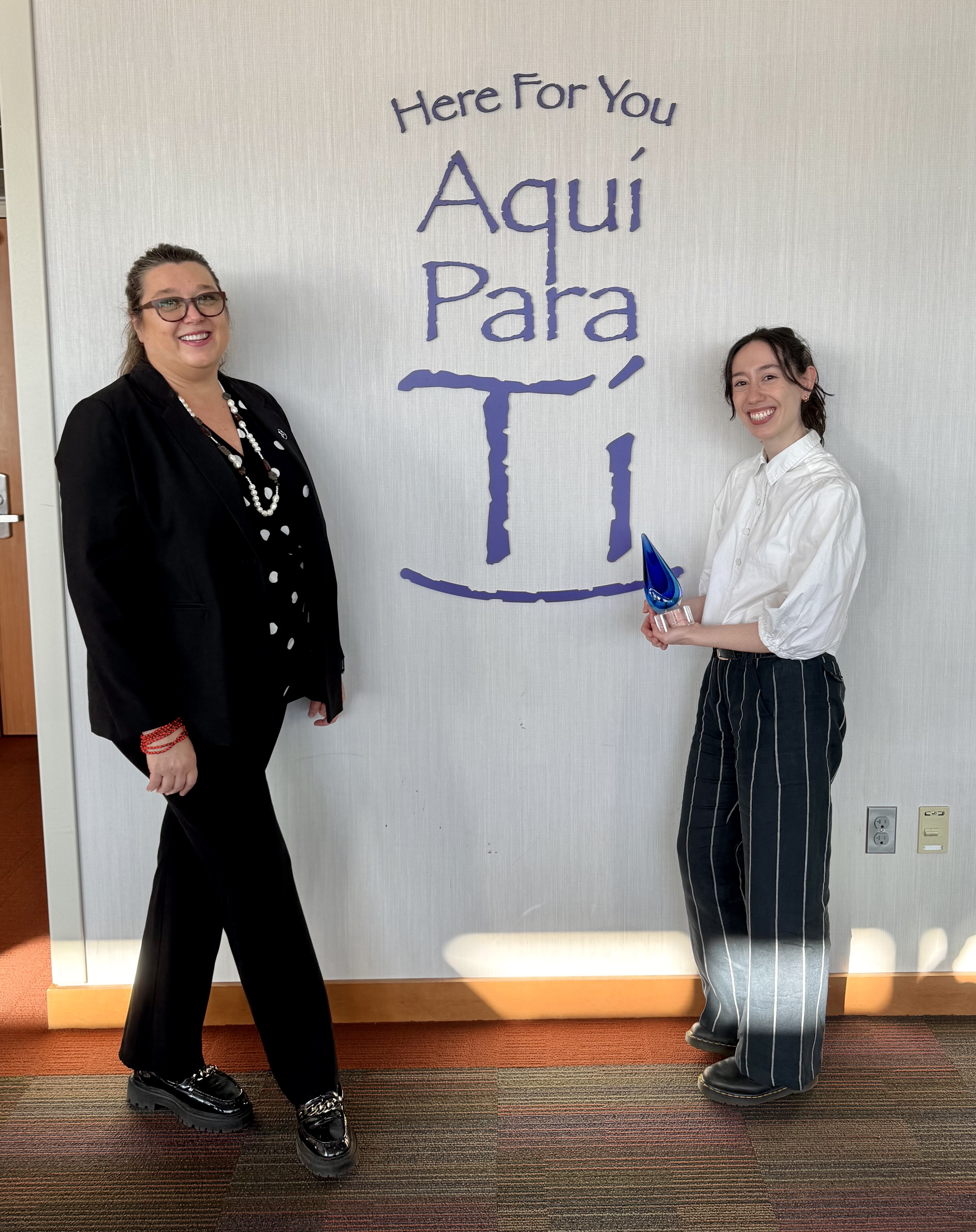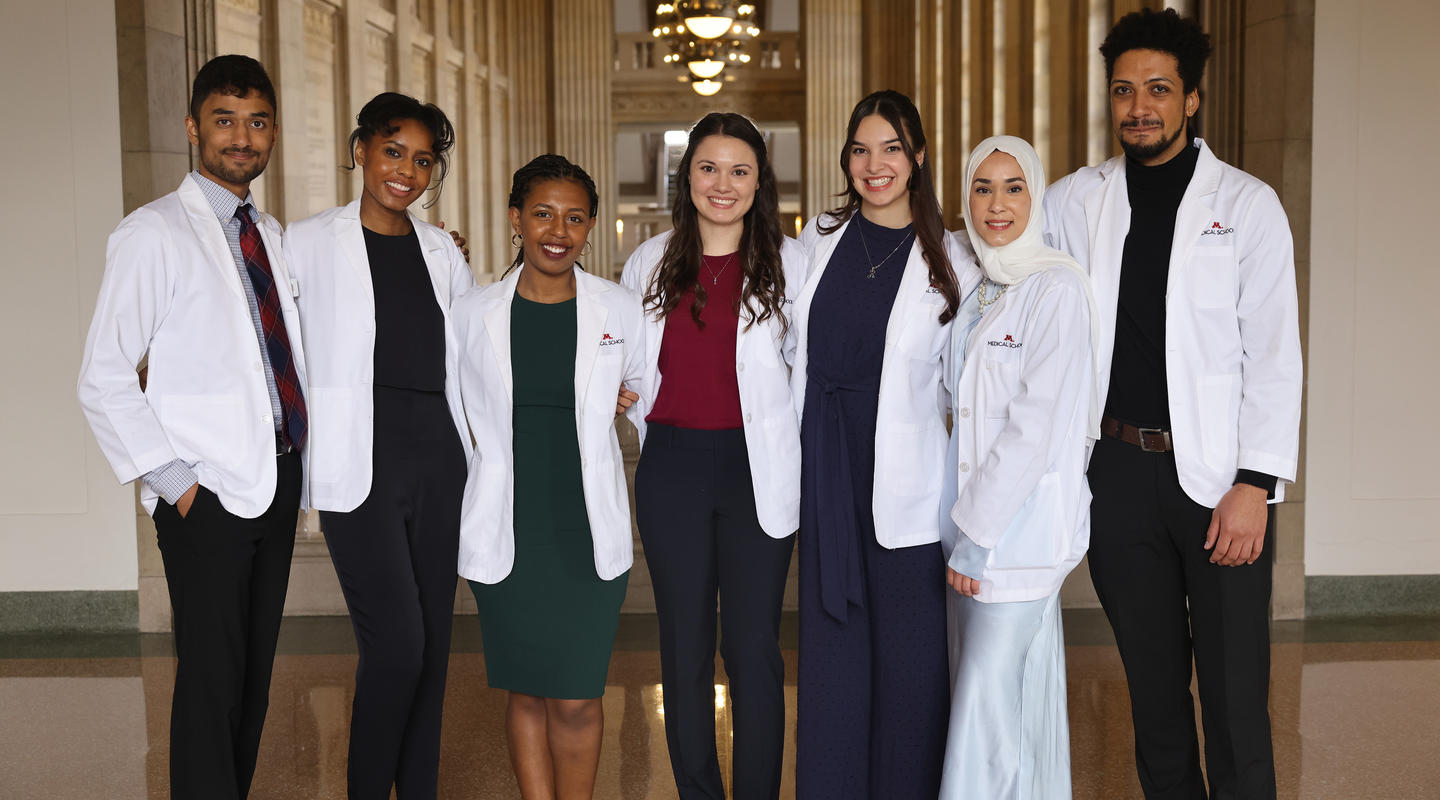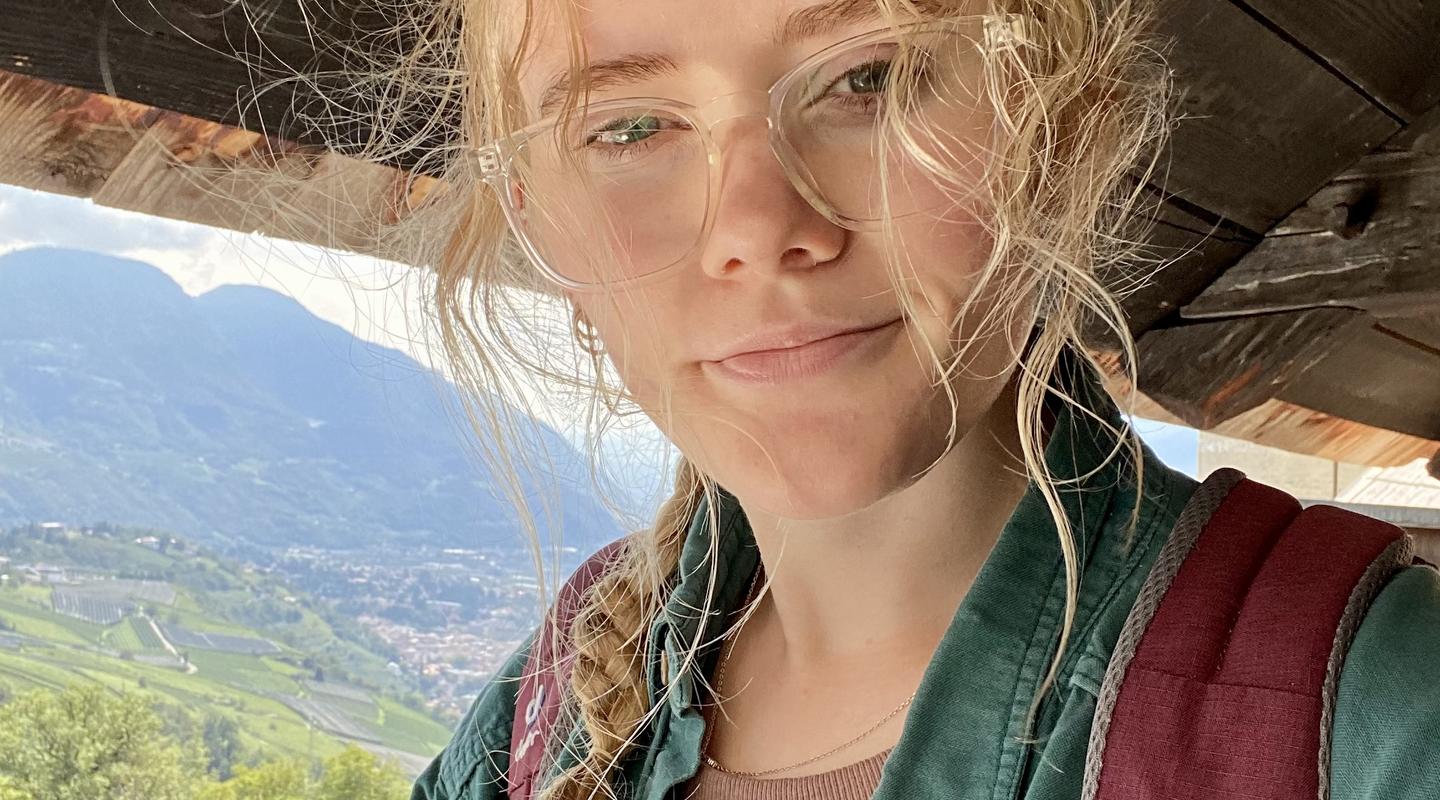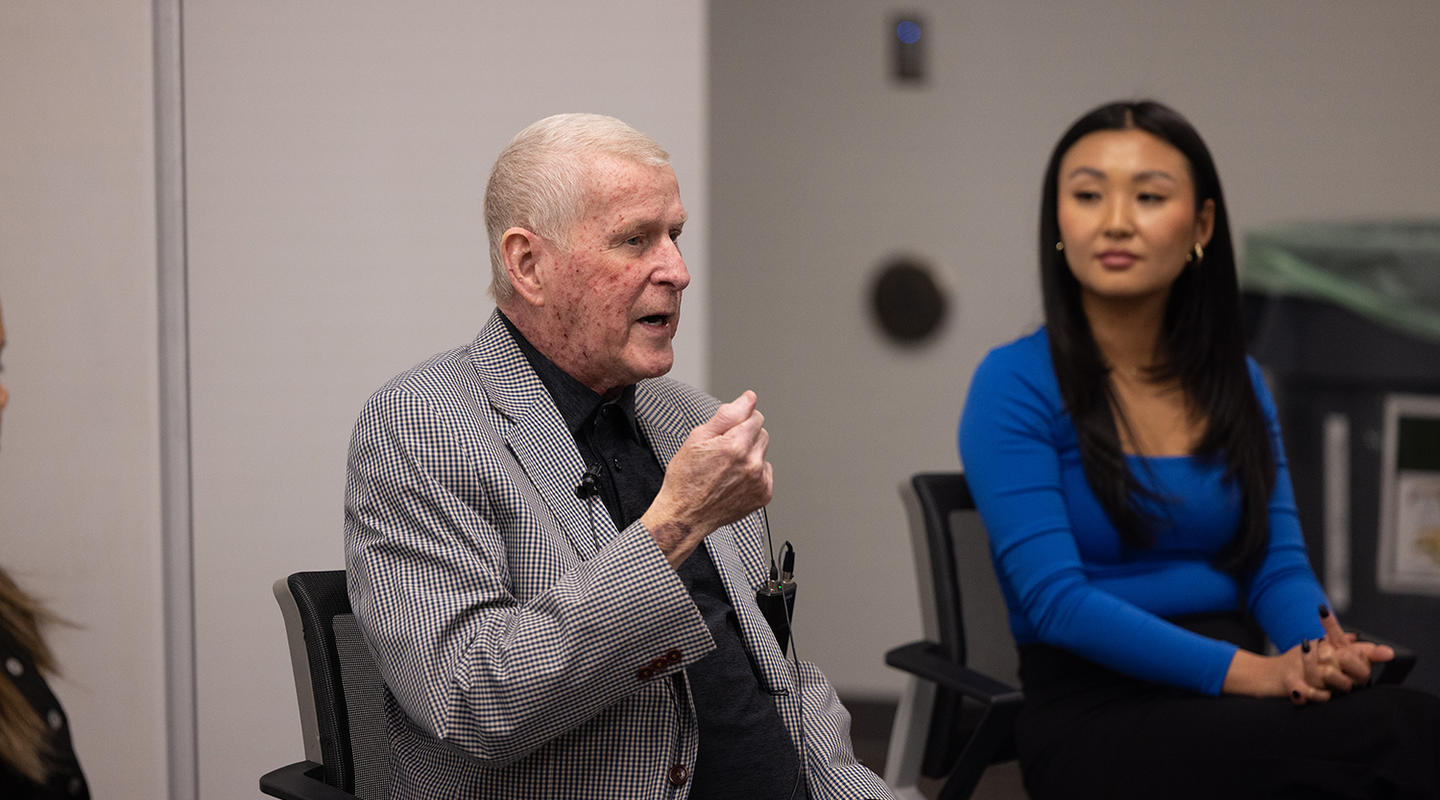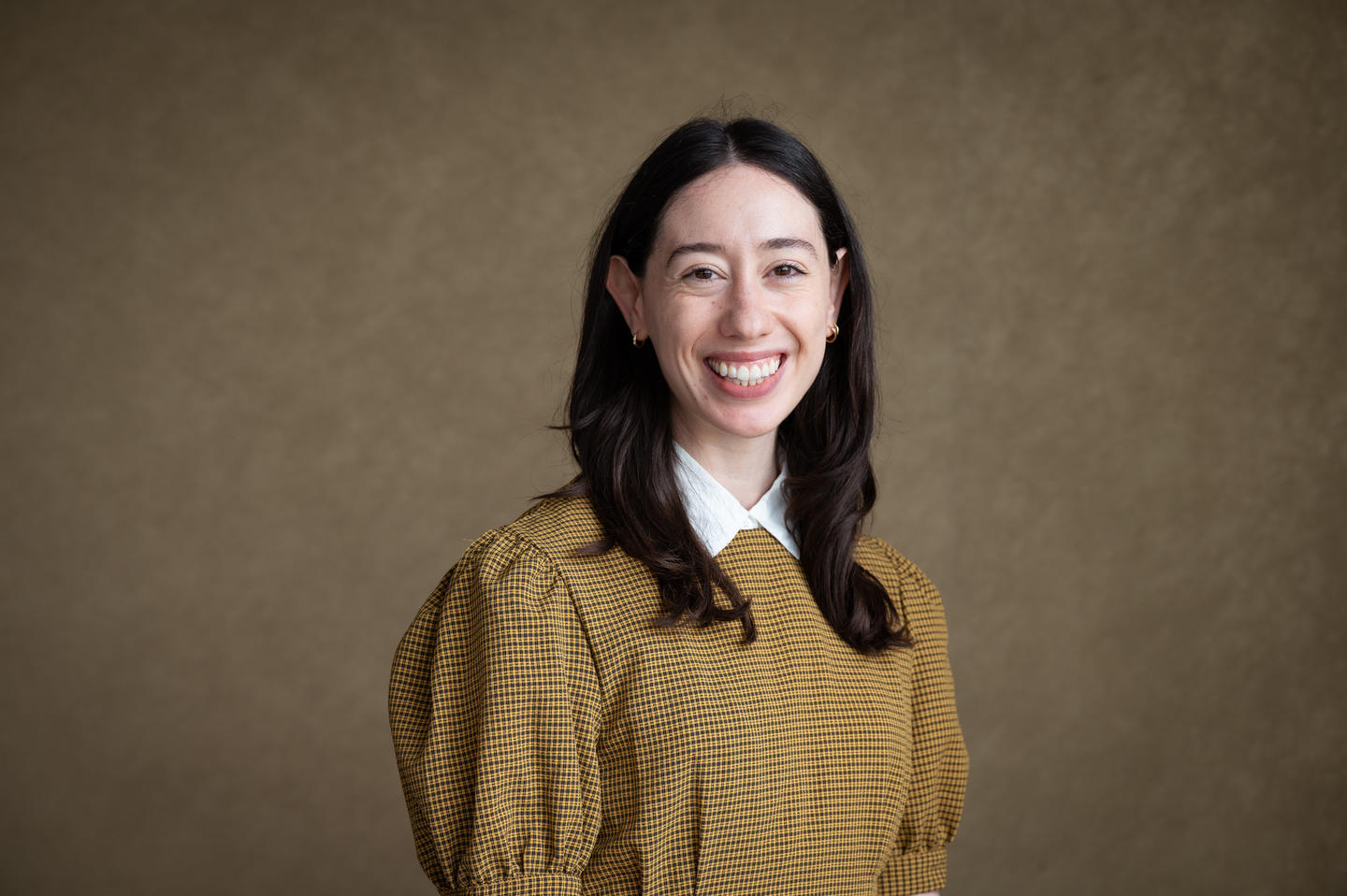
Third-year University of Minnesota Medical School student Miranda Harris spent her childhood navigating between cultures—an experience that shaped her worldview and ultimately put her on a path toward a career in medicine.
“I actually grew up spending time in both south Florida and Ecuador—my mother is Ecuadorian, and her work as an archeologist brought us back there every summer,” she says. “As a result, I developed a type of fluidity between cultures and languages and saw health disparity in both places, which is a big part of why I went into medicine.”
Harris made her way to the Twin Cities when she enrolled at Macalester College. After graduating with degrees in biology and French studies, she spent two years doing research in the U of M Medical School’s Department of Microbiology and Immunology. Then she accepted a position at the Science Museum of Minnesota, where she led after-school STEM programming for underserved youth in St. Paul.
“Those first years out of college really helped me develop my roots here, and I also discovered that Minnesota has a very diverse and robust Latinx population,” she says. “All this time, medicine was in the back of my mind, but it took me some time to realize that I wanted to pursue medical training formally.”
Harris applied to many schools, but the U of M offered her such a generous scholarship that she knew she couldn’t turn it away.
“[The scholarship support] absolutely made the decision for me,” she says. “The University of Minnesota removed the financial barrier, which has just been such a relief because I don’t have a monetary burden hanging over me throughout school.”
Passion for primary care
This financial support is allowing Harris to pursue a career in primary care. Traditionally less lucrative than other specialties, many medical students who need to take on significant debt to finish their training often feel pressure to go into a more profitable medical field.
This financial reality has played a part in a serious lack of primary care doctors in the United States—a shortage that is projected to reach 48,000 by 2034, according to the Association of American Medical Colleges (AAMC). The AAMC reports that 40% of primary care physicians will enter their retirement years in the next decade, while nationwide only 20% of graduating medical students are entering primary care. (Today nearly 50% of U of M Medical School graduates enter primary care fields.)
Tackling disparities
Last summer, Harris volunteered with the U of M’s Mobile Health Initiative (MHI) as a Spanish translator. Launched in June of 2020, MHI sends buses throughout Minnesota staffed with doctors and volunteers who provide health care to the communities that need it the most.
“Not only does [the program] help tackle barriers to health care throughout Minnesota, it also gives student volunteers a firsthand view of the sociopolitical causes of health disparities,” Harris says, “and the need for primary care doctors to address them.”
Now Harris is completing the Medical School’s Metropolitan Physician Associate Program (MetroPap)—a nine-month clerkship for third-year medical students who want to serve patients in urban communities. She was placed at La Clinica, a federally qualified health center in St. Paul that serves a predominantly Spanish-speaking population.
The Hispanic Latinx population is one of the fastest growing in Minnesota, which is why Harris thinks clinics like these are essential.
“Minnesotans need physicians who connect with patients culturally, because it’s proven that better care results when patients have ethnic and linguistic concordance with their physician,” she says. “It’s wonderful to culturally connect with a patient because, as a result, they feel seen, represented, and heard.”
Active and engaged
Harris is an active member of the Medical School’s student body. She volunteers as a translator at the University’s free, student-run clinic; she serves as the community chair for the Latino Medical Student Association; and she helped organize the first-ever Latinos with Stethoscopes youth summit at Hennepin Healthcare.
Harris also recently received the Minnesota Academy of Family Physicians’ Medical Student Leadership Award. She has traveled with the organization to Washington, D.C., to speak with lawmakers about expanding Medicaid and received a grant that supported her research with Latinx youth on how to better tailor primary care to their experiences as first- and second-generation immigrants.
And she’s enjoying it all.
“I feel immensely privileged to receive such excellent preparation to enter the field of medicine,” she says, “while also having time to engage in ways that support the communities that I came from.”
